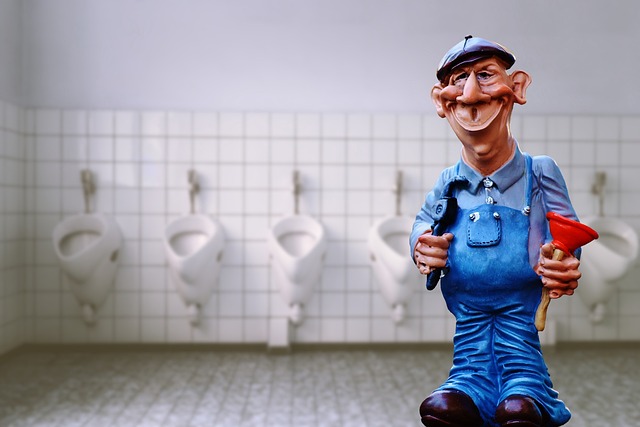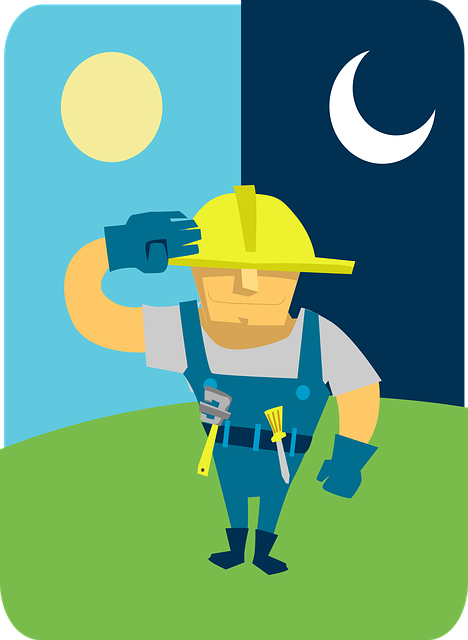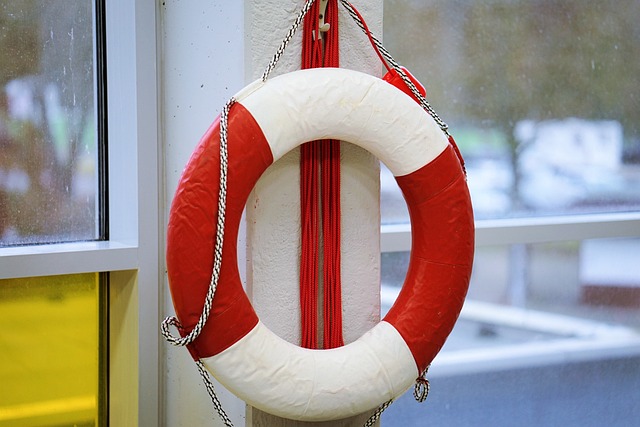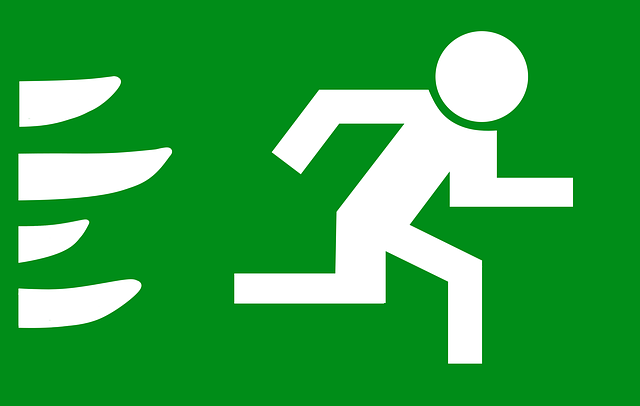An emergency plumber is a crucial resource for sudden plumbing issues, offering quick responses to problems like burst pipes or clogged drains. Their expertise prevents long-term damages and saves time and money. Before an emergency, turn off the water supply at the main shut-off valve and identify the problem. Common issues include leaking pipes, clogged drains, and frozen pipes. Modern plumbers use advanced tools like video inspection cameras and real-time monitoring systems for swift fixes. Preventive measures like regular inspections and leak repairs reduce the need for costly emergency services.
Need urgent plumbing help? This guide equips you with all the knowledge required to handle emergency situations. From burst pipes and clogged drains to quick troubleshooting tips before an emergency plumber arrives, we cover everything. Discover the skills and technology modern professionals use, plus preventive measures to avoid costly disasters. Learn how to navigate these challenges effectively.
Understanding Emergency Plumbing Situations: From Burst Pipes to Clogged Drains

Emergency plumbing situations can range from burst pipes causing water damage to clogged drains hampering daily operations. An emergency plumber is often the first point of contact for businesses and homeowners facing these issues. They are equipped to handle sudden problems promptly, minimizing disruptions and potential long-term damages.
Whether it’s a pipe that has burst due to freezing temperatures or a drain line that has become obstructed from debris buildup, an emergency plumber possesses the tools, knowledge, and experience to resolve these issues efficiently. Their quick response not only saves you from immediate inconveniences but also prevents more serious problems from arising, such as structural damage caused by water leaks or sanitation issues due to clogged drains.
The Role of a Professional Emergency Plumber: Skills and Expertise Required

When faced with an emergency plumbing issue, whether it’s a burst pipe, a clogged drain, or a water heater malfunction, it’s crucial to turn to a professional Emergency Plumber. These experts possess a unique set of skills and expertise designed to address urgent plumbing problems swiftly and effectively.
A professional Emergency Plumber is trained in diagnosing complex issues quickly, often using advanced tools and techniques. They understand the intricate workings of various plumbing systems, from traditional setups to modern smart homes. Their ability to assess the situation promptly enables them to implement suitable solutions, minimizing water damage and ensuring the restoration of proper drainage or water supply. Moreover, these plumbers maintain a deep knowledge of local building codes and regulations, guaranteeing that any repairs they make meet safety standards.
Quick Action is Key: Steps to Take Before the Plumber Arrives

When an emergency plumbing issue arises, quick action is vital. Before the arrival of an emergency plumber, take these essential steps to mitigate damage and ensure a smoother process:
1. Turn off the water supply at the main shut-off valve. Locate this valve typically near your water meter or in an easily accessible spot within your home or business. Closing the valve stops the flow of water, preventing further leakage or flooding while waiting for professional help.
2. Identify the source of the emergency. Check for common issues like burst pipes, clogged drains, or toilet overflows. Understanding the problem helps you communicate effectively with the plumber and allows them to focus on the right solution from the start.
Common Emergency Plumbing Issues in Homes and Businesses

Common Emergency Plumbing Issues in Homes and Businesses
Leaking pipes, clogged drains, and burst water heaters are some of the most frequent emergency plumbing issues faced by both homeowners and business owners. These problems can arise due to a variety of reasons, including aging infrastructure, severe weather conditions, or improper maintenance. In commercial settings, high-traffic areas like kitchens and restrooms are particularly prone to these emergencies, with grease buildup in drains or heavy use leading to constant wear and tear on pipes and fixtures. Similarly, residential properties may encounter issues such as frozen pipes during colder months, which can cause significant damage if left unattended.
Another common problem is low water pressure, which can be caused by leaks in the system or issues with the main water supply line. This not only affects the efficiency of plumbing but also the functionality of appliances that rely on a steady flow of hot or cold water. An emergency plumber is often needed to quickly diagnose and fix these problems before they escalate, minimizing disruption and potential water damage.
Tools and Technology: How Modern Plumbers Address Emergencies Efficiently

Modern plumbers now have access to a wide range of tools and technology that enable them to address emergencies efficiently. From high-tech diagnostic equipment to innovative repair methods, these advancements ensure swift and effective solutions. For instance, video inspection cameras allow plumbers to visually inspect hard-to-reach areas, pinpointing the exact source of a problem without causing further damage. This technology not only saves time but also reduces the risk of complications during emergency repairs.
Additionally, advanced plumbing tools like precision cutting devices and specialized repair kits enable plumbers to make clean, accurate cuts and fix issues on the spot. Real-time monitoring systems also play a crucial role, providing data on water pressure, flow rates, and potential leaks, allowing for proactive measures and faster response times. These modern conveniences have transformed the way emergency plumbers operate, ensuring that homes and businesses receive prompt and efficient service during unforeseen plumbing crises.
Preventive Measures: Tips for Homeowners and Business Owners to Avoid Plumbing Disasters

Preventive Measures: Tips for Homeowners and Business Owners to Avoid Plumbing Disasters
Regular maintenance is key in averting plumbing emergencies. For homeowners, a simple yet effective strategy is to schedule periodic inspections and cleanouts. Starting with drain cleaning and checking for leaks can help identify potential issues early on. Using drain covers and catching debris before it goes down the sink or toilet also prevents clogs. Business owners should invest in regular commercial plumbing maintenance to keep up with higher usage demands, ensuring that equipment and fixtures are well-maintained and serviced.
Additionally, both homeowners and businesses can implement water-saving measures like installing low-flow aerators on faucets and showerheads, fixing leaks promptly, and using energy-efficient appliances. These preventive actions not only save water but also reduce utility bills. Remember, an emergency plumber is a valuable resource when problems arise; however, proactive measures significantly minimize the need for urgent repairs and disruptions.
